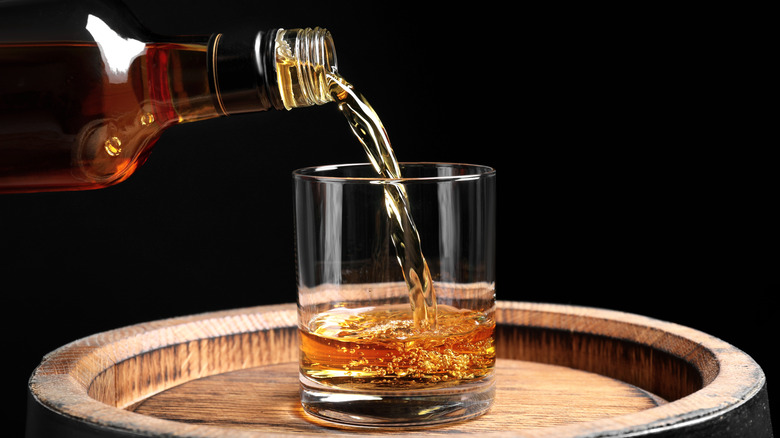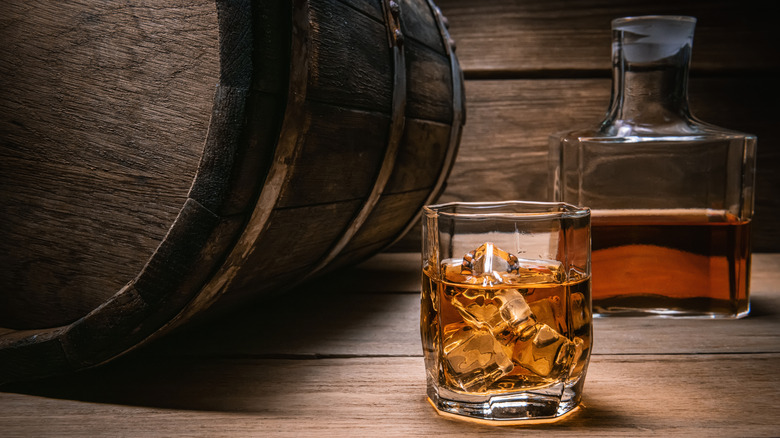Here's What It Means If Your Bottle Of Bourbon Is 'Single-Barrel'
Bourbon is experiencing an unprecedented boom in popularity, and the single-barrel style is not only one of the most sought-after but also often the hardest to come by. As the name suggests, single-barrel bourbon is sourced from one barrel only. As a result, the price tag is high and, when the bottles are gone, that's it.
To understand what makes single-barrel bottlings both unique and expensive, it's important to consider the difference between bourbon and whiskey. As a side note, whisky should not be confused with whiskey, the latter of which is generally made in either America or Ireland, with the former from Scotland, India, Japan, or Canada.
By law, bourbon whiskey must have a mash bill (the percentage of each type of grain used) containing at least 51% corn and must be aged in new, charred oak barrels with specific requirements around time in the barrel.
Aging affects bourbon's aroma and flavor complexity because of how it interacts with the wood and how long it comes in contact with it. In general, distillers use multiple barrels for each batch because it ensures a consistent, reliable flavor from bottle to bottle.
Single-barrel bourbon is unique because it only offers the distinctive character of one barrel. Sometimes, the product is soaringly delicious, with notes of vanilla, caramel, oak, spice, and a myriad of other characteristics. Unfortunately, it can also be disappointing since no one knows what it will taste like until it comes out. Still, the risk-to-reward ratio is, in a way, part of what makes single-barrel bottles so intriguing.
Beyond single-barrel bourbon
If you can't afford or can't track down any single-barrel bourbons, there are plenty of other styles from which to choose. An alternative is small-batch bourbon where the final product is from a small number of specifically chosen barrels. Like single-barrel, small-batch can be expensive but is more consistent and often more available.
No matter the style, you should be aware of the phrases full proof or barrel proof, which might appear on the bottle. Full proof (also called original proof or entry proof) refers to whiskey whose ABV (alcohol by volume) is the same as it was when it was put into the barrel, achieved by replacing water that evaporated during aging. The ABV of barrel-proof bourbon is higher because there's no dilution, so you experience a more intense expression of the flavors and a more potent alcoholic wallop. These additional elements add another layer of interest to any bourbon you buy.


